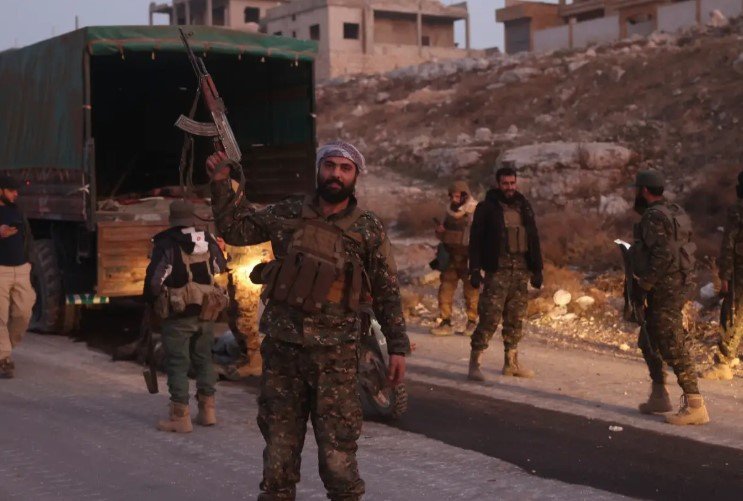Assad Faces Unexpected Challenge as Rebels Advance Toward Syrian Capital
Syria’s President Bashar al-Assad is grappling with a sudden surge in rebel activity that threatens to unravel years of fragile peace in the country. The rebel group Hayat Tahrir al-Sham (HTS), a faction that split from al-Qaeda, launched a surprise offensive last week, swiftly capturing the key northern city of Aleppo. Now, their eyes are set on Syria’s capital, Damascus, pushing Assad into urgent consultations with his key allies, Russia and Iran.
Since the fall of Aleppo, Assad’s forces have been on the defensive, as HTS insurgents continue to make significant territorial gains. The situation has forced Assad into a rare meeting with Russian President Vladimir Putin and Iranian officials to discuss military strategies, supply support, and potential interventions to stem the tide of rebellion threatening to destabilize the region.
Rebel Momentum Continues Despite Heavy Losses
Despite the deaths of over 300 insurgents in recent clashes, the offensive by HTS and other anti-government groups shows no signs of slowing down. The rebels, capitalizing on a combination of local support and tactical surprises, have managed to capture Aleppo and are now advancing toward the strategically important city of Hama. These cities are crucial not just for their military significance but for their symbolic value in the ongoing conflict.

The capture of military equipment, including a Syrian Army helicopter, marks a dramatic escalation in rebel capabilities. For the first time, reports suggest that insurgents are utilizing military aircraft against Assad’s forces, giving them an edge in the air, something they have never had before. The rebels’ successful use of this weaponry points to a worrying trend of increased sophistication in their operations, and raises the stakes for the Syrian government.
Global Concern and Calls for De-Escalation
The international community has expressed grave concerns over the escalating violence in Syria. The United States, along with France, Germany, and the United Kingdom, issued a joint statement urging for “de-escalation” in the region. Their plea emphasizes the importance of protecting civilians and critical infrastructure from the ongoing military operations.
The growing instability in Syria has prompted increased calls for a diplomatic resolution, with pressure mounting on all parties involved to limit the violence and find a path toward peace. Despite these calls, the situation on the ground remains dire, and the conflict appears far from reaching any resolution in the immediate future.
Assad’s Growing Dependence on Russian and Iranian Support
With the rebel forces advancing toward the heart of Syria, Assad’s need for external support has never been greater. Russia and Iran, two of Assad’s most loyal allies in the Syrian conflict, have already been providing substantial military assistance, including airstrikes and ground support. The latest surge of rebel activity has only intensified their involvement, with discussions reportedly focusing on increasing military aid and coordination between the three countries.
Russia, with its vast air and missile capabilities, and Iran, with its well-established ground forces in Syria, are seen as crucial to Assad’s strategy of maintaining control. As HTS rebels continue to push south, Assad’s reliance on these two powers may become even more pronounced, further drawing Syria into the orbit of Russian and Iranian influence.
The Path Ahead: A Fractured Syria
As Assad seeks to solidify his grip on the country, the long-term future of Syria looks increasingly uncertain. The rise of HTS and other rebel factions shows that the country’s civil war, which has already claimed hundreds of thousands of lives and displaced millions, is far from over. While Assad’s forces may hold some areas of Syria, the ongoing insurgencies indicate that a true and lasting peace remains elusive.
International calls for ceasefire and de-escalation have had little impact on the ground. The rebellion’s advances are emboldened by Assad’s weakening position, and the prospect of further military intervention from Russia and Iran may only prolong the conflict. In the coming weeks, the situation in Syria could continue to deteriorate, with far-reaching implications for regional security and global geopolitics.
